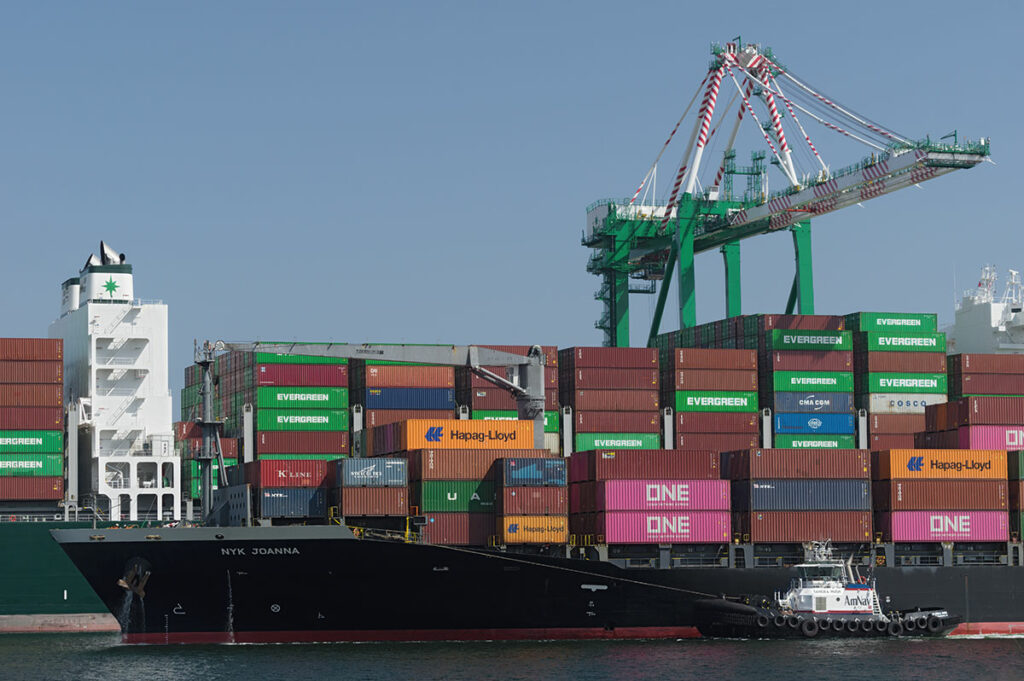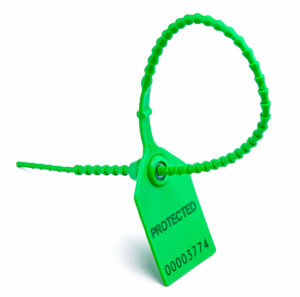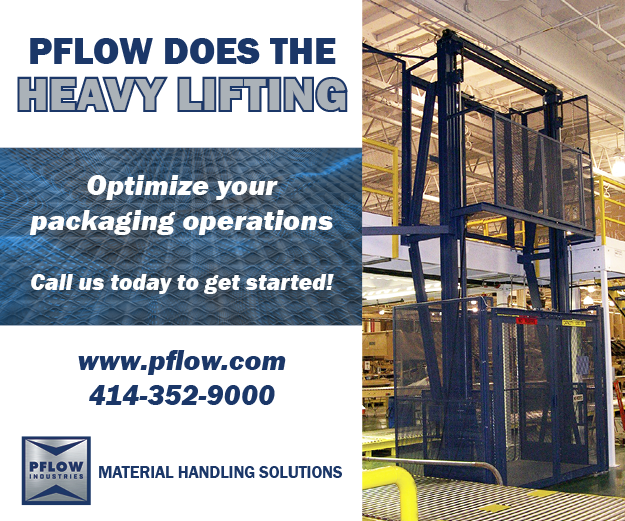Customized Security Seals Deter Theft

Customized security seals can safeguard the contents of cargo goods in transit, maintaining their integrity and compliance during storage and transportation. © angeldibilio – stock.adobe.com
The Need for Packaging Security Measures for Cargo Goods in Transit Is More Pressing Than Ever
By Robin H. Lebovitz, Cambridge Security Seals
In 2023 alone, CargoNet at Verisk reported 2,852 theft incidents — a staggering 59.33% increase from the previous year. As we move forward in 2024, this alarming trend shows no signs of slowing down. The need for security measures is becoming more pressing than ever. Customized security seals can safeguard the contents of cargo goods in transit, maintaining their integrity and compliance during storage and transportation.
Custom-designing security seals demands attention to detail, especially for procurement professionals juggling multiple responsibilities or newbies to the packaging industry. Following we offer a walkthrough of essential considerations, regulatory compliance, tamper evidence, brand visibility and enhanced security measures.

As freight and cargo theft surges, security seals, such as the industry-leading Heavy-Duty Pull Tight Seal by Cambridge Security Seals, are vital for protecting goods and safeguarding their integrity at every stop throughout the supply chain. Image courtesy of Cambridge Security Seals.
Customizing Seals: Essential considerations
When customizing a seal, various factors must be carefully evaluated to ensure optimal security. Seal type, material, size, tensile strength, and other selections significantly influence a seal’s ability to deter theft, ensure traceability and adhere to regulations. For instance, the choice of material — whether lightweight plastic or heavier metal — directly impacts not only the ease of application but also container weight and accessibility.
Metal seals, crafted from steel or aluminum, offer robust resistance against physical tampering. In contrast, plastic seals, while lighter, may be less durable than metal seals in extreme environments, necessitating careful selection among the various plastic designs available, including pull-tight seals.
Tensile Strength: Addressing security concerns
Tensile strength determines a material’s ability to withstand stress without breaking. High tensile strength seals are typically utilized in securing cargo containers or high-value assets, as they resist significant force and thwart tampering attempts. Conversely, low tensile strength seals prioritize tamper evidence over physical force resistance.
Regulatory Compliance: Adhering to rules of commerce
Companies engaging in commerce across borders strive for compliance with regulations like C-TPAT, which enhances supply chain security. Sanitary and phytosanitary measures impact seal selection in sectors like food, pharmaceuticals and medical industries, ensuring health safety during import-export processes. ISO 17712’s “High-Security Seal” designation provides guidelines for mechanical freight container seals, promoting uniformity in global commerce and bolstering security and compliance.
Durability & Longevity: Ensuring effectiveness
The durability and longevity of security seals are pivotal in deterring theft effectively. Seals designed to endure harsh weather conditions remain intact and legible, minimizing risk of compromise. Furthermore, longevity is crucial for maintaining security integrity over extended periods.
Complementary to traditional seals, electronic seals generate a new, unique number each time the seal is opened, and all sealing and opening events are digitally recorded. These seals can last up to 5 years without replacement, providing a layer of control and traceability in the chain of custody.
Length and Size: Tailoring to requirements
Determining the appropriate length and size of a seal is crucial to ensure a secure fit for various applications. Some seals are thin and elongated to accommodate smaller apertures, while others are thicker, catering to specific needs.

Storage Totes and other Intermediate Bulk Containers (IBCs) are a prime target for theft and shrinkage. Plastic Twin Tote Seals (TTS) by Cambridge Security Seals are customizable tote seals, with performance and indicative features. These American-made seals enhance traceability with either consecutive or paired alphanumeric sequences, and are available in 16 different lengths to ensure the perfect fit. Image courtesy of Cambridge Security Seals.
Tamper-Evidence Sealing Mechanism: Applying and removing the seal
Choosing an appropriate sealing mechanism is based on application and security needs. Non tear-off seals are commonly used in applications where a high level of security is required, such as securing cargo containers, shipping containers or sensitive equipment. Non-tear-off seals provide a clear indication if tampering has occurred, as any attempt to remove them will leave visible evidence of damage. The user must have more time and tools to apply and remove the seal.
Branding Visibility: Protecting your company’s visibility and reputation
When your brand is reflected on the seal, it’s a clear sign your company takes its security seriously. It’s much harder to falsify or pass an inauthentic seal through security protocol / procedures if the seal is designed with the company’s trademarked brand colors, name, logo and perhaps even a tagline — space permitting.
Enhanced Security Measures: Custom printing adds a layer of tamper-evidence
Tamper-evident foils provide an additional layer of security by making tampering visually evident. Foil stamping allows for the customization of logos, text, or specific designs on the security seal. Foil stamping can be combined with tamper-evident features, such as holographic elements or patterns that are distorted when tampered with.
- Sequential numbering: Foil stamping can be used to apply sequential numbers or codes on each security seal. Each seal’s number acts as a unique identifier in tracking and authentication, enhancing traceability and helping to identify unauthorized duplicates.
- Hot stamping foil is a method for adding metallic or holographic elements to surfaces. It involves using heat and pressure to transfer a thin layer of foil onto the surface.
- Holographic foils create visually striking, tamper-evident effects. Color foils can be applied to create vibrant, colored elements on the surface, such as colored text, logos, or other design elements.
- Microprinting involves using tiny, intricate text or patterns that are difficult to reproduce accurately without high-resolution equipment and may not be easily visible to the naked eye. Microprinting enhances the security of the seal by making it harder to counterfeit.
All in all, there are numerous considerations when deciding on a custom seal to maximize your assets’ security and the success of your business. Beyond this overview, you’ll still likely want the expertise and guidance of your seals supplier. Collaboration with a product expert can aid in selecting the ideal seal parameters based on the intended application, further enhancing security measures. From material to size, numbering and unique printing, you have lots of choices to establish the best possible custom seal.
About the Author
Robin H. Lebovitz is a Marketing Specialist at Cambridge Security Seals, a New York-based leading manufacturer and supplier of high-performance tamper-evident, high-security, and electronic seals. To learn more about CSS’s high-performance products and outstanding service, please email info@cambridgeseals.com or visit www.cambridgeseals.com.







